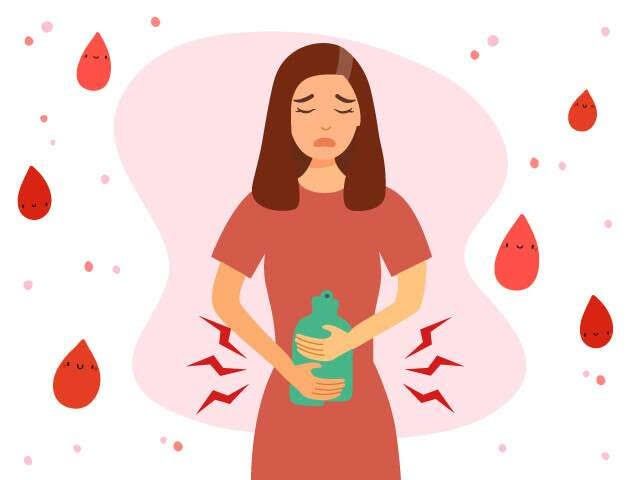For most women, their period is a normal monthly occurrence. When they become abnormally painful or too heavy, however, it might be more than a matter of changing hormonal levels. Though some minimal variation in cycle length or flow is to be expected, ongoing or worsening symptoms should not be dismissed.
At Orange Healthcare- Wakad, Dr. Deepali Nirawane, a seasoned gynecologist and laparoscopic surgeon, educates women about the causes of their menstrual problems and brings you safe, evidence-based solutions. Let’s learn why there is heavy bleeding and painful periods, and when you should get medical attention.
What Is Abnormal Menstrual Bleeding?
Heavy or abnormal menstrual bleeding, or menorrhagia, might include:
- Bleeding that lasts for more than 7 days
- Leaking through one or more pads/tampons every 1–2 hours
- Passing clots of blood
- Light-headedness or dizziness during menstrual periods
- Nighttime protection change or doubling up
Painful menstruation, known as dysmenorrhea, is also abnormal if:
- The pain interferes with normal daily functioning
- Pain occurs before bleeding and continues throughout most of the cycle
- Over-the-counter analgesics fail to work
Common Causes of Heavy or Painful Periods
- Uterine Fibroids
Fibroids are benign growths within or on the uterus that may lead to heavy bleeding, pelvic pressure, and lengthened periods. Fibroids affect women of reproductive age.
- Endometriosis
Endometriosis is a condition where tissue like the lining of the uterus grows outside of the uterus, leading to heavy bleeding, cramping, painful intercourse, and heavy periods. It tends to be underdiagnosed and associated with infertility.
- Adenomyosis
This condition is caused when the uterine lining grows into the uterine muscle, causing heavy, painful periods and a bulky, tender uterus.
- Hormonal Disorder (PCOS, Thyroid Disease)
Thyroid disease and Polycystic Ovary Syndrome (PCOS) can lead to irregular, heavy, or absent periods due to deranged ovulation and hormone levels.
- Endometrial Polyps
These are soft, benign uterine lining overgrowths that can result in spotting between menstrual periods or prolonged bleeding.
- Pelvic Inflammatory Disease (PID)
PID is an infection of the reproductive tract, usually due to untreated STIs, which causes pain, irregular bleeding, and discharge.
- Bleeding Disorders
Disorders such as Von Willebrand disease or low platelet counts may disturb blood clotting and cause abnormally heavy menstrual bleeding.
- Cancer or Precancerous Changes
Although it is not common, endometrial or cervical cancer could be the cause of abnormal bleeding patterns, particularly in post-menopausal age.
When to See a gynecologist
Don’t wait for care if you have any of the following:
- Periods that interfere with work or activities of daily living
- Bleeding between periods or after sex
- Sudden change in flow or cramping
- Periods that last over 7 days
- Severe pain that doesn’t go away with pain medication
- Symptoms of anemia such as weakness, dizziness, or paleness
These may be signs of an underlying, treatable condition, and an early diagnosis can avoid complications.
Diagnosis & Evaluation
At Orange Healthcare, a complete gynaecological evaluation can include:
- Pelvic examination
- Ultrasound (transvaginal/abdominal
- Blood work (for anemia, hormones, thyroid, and clotting disorder)
- Pap smear and HPV test
- Hysteroscopy (if necessary to see inside the uterus)
Treatment Options
Treatment will vary based on the cause, severity, age, and fertility intention. These options exist:
Lifestyle & Medication
- Anti-inflammatory medications (for pain management)
- Hormonal pills or IUDs to control cycles
- Iron supplements for anemia
- Weight control and dietary changes for PCOS
Minimally Invasive Procedures
- Laparoscopy to remove fibroids or endometriosis
- Hysteroscopic removal of polyps or fibroids
- Endometrial ablation (to minimize bleeding)
Surgical Options
- Hysterectomy (in extreme or recalcitrant cases)
Dr. Deepali Nirawane is a specialist in advanced laparoscopic gynecological surgeries, providing rapid recovery and reduced pain as opposed to conventional surgery.
Conclusion
Heavy and painful periods cannot be tolerated as “normal” or to quietly endure. They are your body telling you that there is something amiss. Most of these conditions are treatable or even curable with the right treatment and early recognition.
At Orange Healthcare, Wakad, Dr. Deepali Nirawane provides expert diagnosis and compassionate care tailored to each woman’s needs. From hormonal therapy to minimally invasive surgery, you’ll receive holistic guidance to restore your comfort and health.
